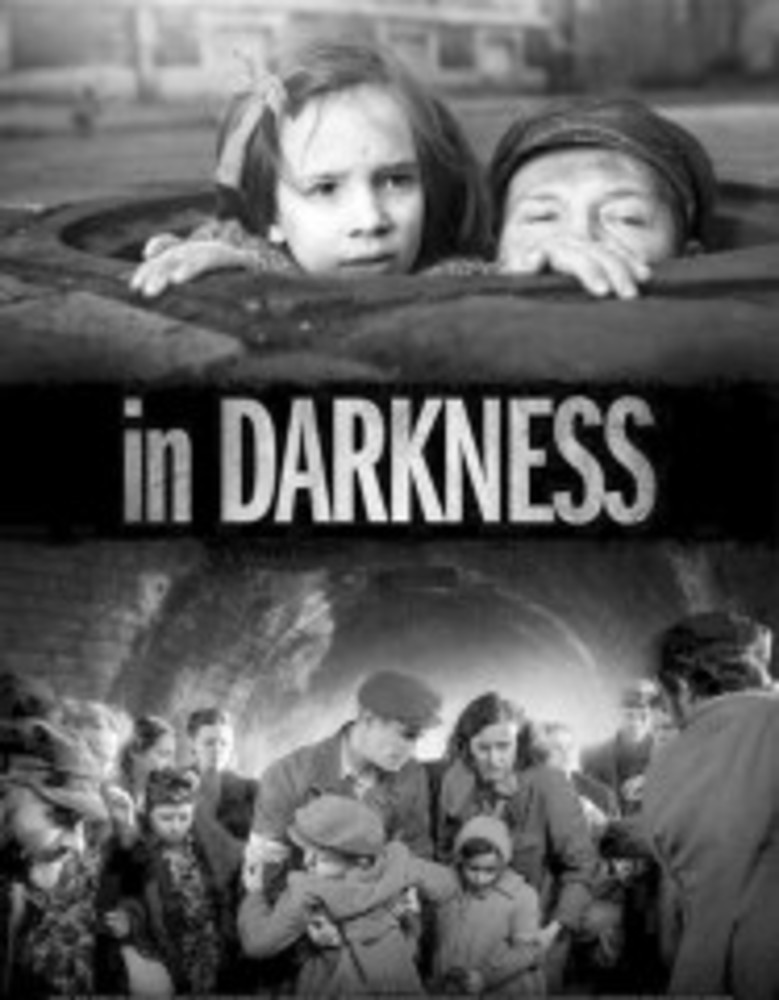University of Rhode Island Diversity Week
 KINGSTON – University of Rhode Island students, faculty and staff gathered on Oct. 2 for the screening of “In Darkness,” hosted by URI Hillel in Swan Hall Auditorium as part of URI’s Diversity Week. Academy Award nominated – Best Foreign Film 2011 – “In Darkness,” based on a true story, tells the tale of Leopold Socha, a sewer inspector and thief, and his encounter with a group of Jews trying to escape the liquidation of the ghetto in 1943 in Lvov, Poland. (See related story in the Sept. 27 issue of The Jewish Voice “URI Hillel presents Academy Award nominated film.”)
KINGSTON – University of Rhode Island students, faculty and staff gathered on Oct. 2 for the screening of “In Darkness,” hosted by URI Hillel in Swan Hall Auditorium as part of URI’s Diversity Week. Academy Award nominated – Best Foreign Film 2011 – “In Darkness,” based on a true story, tells the tale of Leopold Socha, a sewer inspector and thief, and his encounter with a group of Jews trying to escape the liquidation of the ghetto in 1943 in Lvov, Poland. (See related story in the Sept. 27 issue of The Jewish Voice “URI Hillel presents Academy Award nominated film.”)
Special guest to the event, David Shamoon, screenwriter and executive producer of the film, held a Q and A discussion after the showing.
Socha, the film’s protagonist, provides refuge – for pay– for about a dozen Jews in the sewers in which he works. The characters’ struggles and growth are highlighted in the film as they are forced to hide in the sewers for 14 months. Before the film, Shamoon addressed the mostly young audience. “Really it’s up to you to carry the world forward,” Shamoon said. “Hopefully you can learn from them.”
The film is an honest, brutal portrayal of life for Jews in Poland in 1943. The graphic nature of the film is unnerving for some. “What you’re seeing is just ten percent. The brutality was much worse in reality,” said Shamoon. Despite their living conditions and constant fear, the characters in the film are often shown laughing and smiling. “We wanted to show that there was a lot of joy in spite of the brutality around them.” Shamoon said. “It was important for us to show that each of the characters was human.”
Scenes of a sexual nature were also common in the film and, as Shamoon explained, in real life during that time. “They made love like crazy. They were faced with death 24 hours a day, seven days a week. It’s the only way to cope with it – to stay human.” It was a challenge for Shamoon to give each of the characters individual attributes so they stood out from each other. Some characters in the film were combinations of two real-life characters.
The film received accolades from students at the event. “I loved it. I thought it was very interesting – how real it was and not glamourized,” said Kelly Carpenter. Other students agreed with her. “I think that, even though it is sad and depressing, it’s something that everyone should know about,” said Sterl Carpenter. “I liked that people in that time, despite their circumstances, found joy and kept up with their customs.” Sabrina Brotons, student co-president of URI Hillel also spoke about the event. “The movie was very interesting,” she said. “It was great to be able to speak to David Shamoon. It’s important to remember tragedies like the Holocaust all year long and not just during events like Diversity Week.”
Shamoon got the idea to make this film while reading the news. He read about a Polish thief who provided refuge to Jews in the sewers and became intrigued. It took eight years to get the film made and the process began with extensive research. The main language the actors speak in the film is Polish, but the film also includes German, Yiddish and Ukrainian. “I don’t speak the language – not a word,” Shamoon said, but if it were in English, “It would lose its authenticity.” The film was shot in Germany and Poland. Shamoon revealed that he is currently working on new scripts, but declined to give any more information.
Justin Willner (justinwillner@gmail.com) is a fifth-year journalism student at URI.







